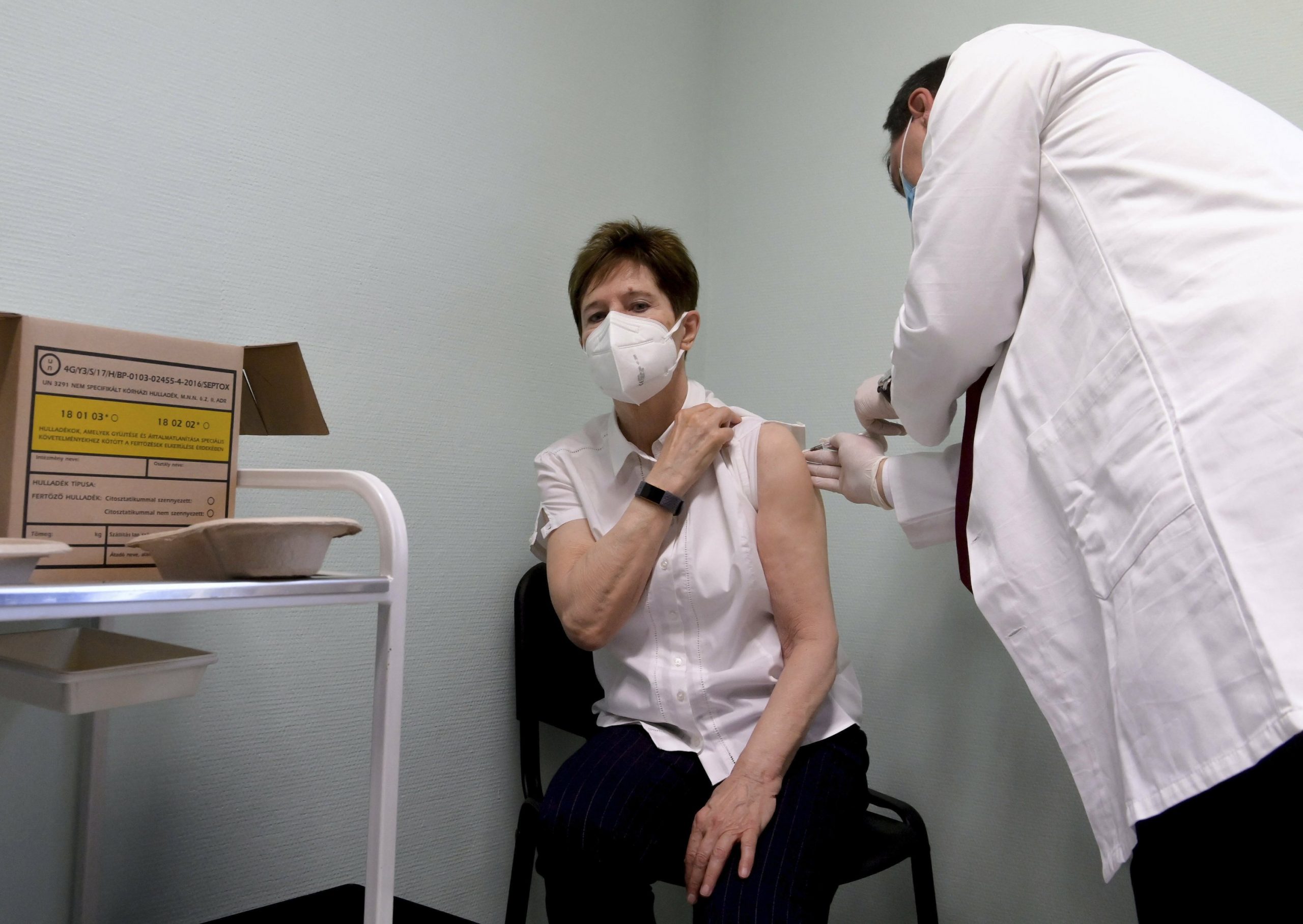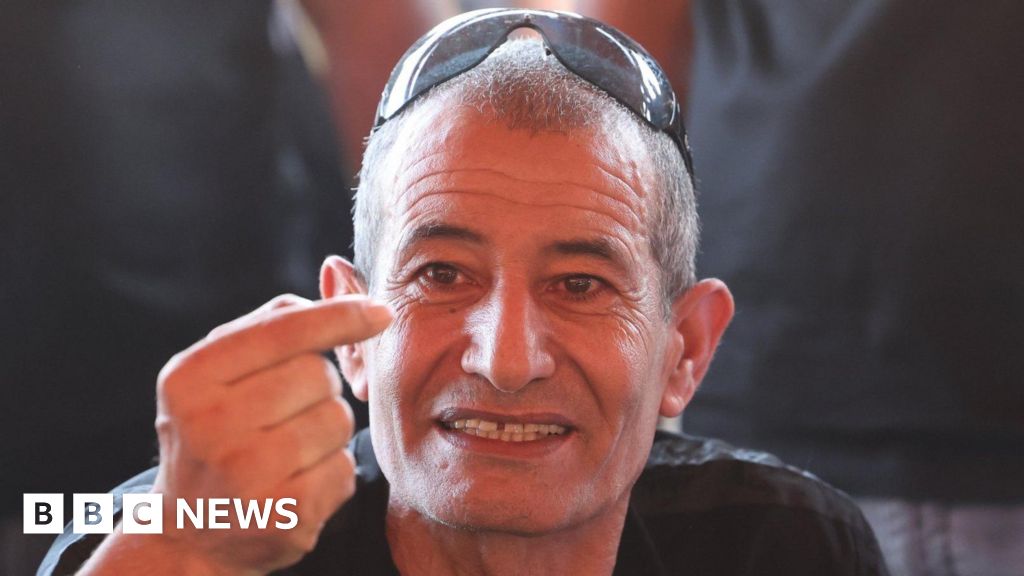WARSAW, POLAND (AP) – Hungarian doctors and health care workers began vaccinating one of the continent’s first shipments of coronavirus on Saturday, upsetting the European Union’s plans for coordinated implementation of first shots across the country’s 27 countries. Sunday mass.
The first shipments of the vaccine arrived at hospitals across the European Union in extremely cold containers late Friday and early Saturday after being dispatched from a manufacturing center in Belgium before Christmas.
It was not immediately clear why the Hungarian authorities started the vaccination so early. The authorities in Slovakia also announced that they intend to start administering their first doses on Saturday evening.
European Commission President Ursula von der Leyen released a video to celebrate the launch of the vaccine, describing it as “a moving moment of unity”.
“Today, we are starting to turn the page in a difficult year. The vaccine for COVID-19 has been delivered to all European Union countries. And she said that vaccination will start tomorrow across the European Union.”
The launch marks a moment of hope for a region that includes some of the world’s oldest and most dangerous areas affected by the virus – Italy and Spain – and others like the Czech Republic, which were averted early only to see health care systems near their breaking point in the fall.
In all, the 27 European Union countries have seen at least 16 million cases of coronavirus and more than 336,000 deaths. The launch of the vaccine will help the bloc project feel lonely in a complex mission to save lives after struggling with a year of difficulties negotiating a post-Brexit trade deal. It also brings relief to EU politicians who have been frustrated after Britain, Canada and the United States began vaccination programs earlier this month.
“It’s here, the good news for Christmas,” German Health Minister Jens Spahn told a news conference on Saturday. “This vaccine is the critical key to ending this epidemic.”
“This is the key to getting back our lives,” Span said.
However, the first shipments are limited to fewer than 10,000 doses in most countries, and mass vaccination programs are expected to start only in January. Each country decides on their own who gets the first shots – but they all put the most vulnerable people first.
In Hungary, the first shipment of 9,750 doses – sufficient to vaccinate 4,875 people, given that two doses are needed per person – arrived by truck early Saturday and taken to South Pest Central Hospital in Budapest. The government said four other hospitals, two in Budapest and two others in the eastern cities of Debrecen and Nyiregyhaza, will receive the vaccines from the initial shipment.
The French authorities said they would prioritize the elderly, based on the deadly effect of the virus on the elderly in previous waves of the virus in France. The French Medical Safety Agency will monitor any potential problems.
Germany, where the epidemic has killed more than 30,000 people, will start with those over the age of 80 and the people who care for vulnerable groups.
The Spanish authorities said that the first batch of the vaccine that arrived in the country arrived in the central city of Guadalajara – where the first vaccinations will be given on Sunday morning in a nursing home.
In Italy, which has the worst number of deaths from the virus in Europe with more than 71,000 people, a nurse in Rome at Spallanzani Hospital, the main infectious disease facility in the capital, will be the first in the country to receive the vaccine, followed by other health workers.
In Poland, the first two people to be vaccinated on Sunday will be a nurse and a doctor at the Interior Ministry Hospital in Warsaw, the main hospital for coronavirus in the capital, followed by medical staff in dozens of other hospitals.
Polish Prime Minister Matthews Murawiecki described it as a patriotic duty of Poles to get vaccinated – a message to a society where there is a high degree of vaccine hesitancy resulting from a general distrust of the authorities.
In Bulgaria, where vaccine frequency is also increasing, the first person to receive the vaccine will be Health Minister Kostdin Angelov, who has promised to launch a vigorous campaign to boost the benefits of the vaccines.
In Croatia, where the first batch of 9,750 vaccines arrived early Saturday, the residents’ nursing home in Zagreb, the capital, will be the first to receive the vaccine Sunday morning, according to official HRT TV. The authorities also planned to involve celebrities and other public figures in a pro-vaccination campaign.
“We have been waiting for this for a year now,” Romanian Prime Minister Florin Cato said on Saturday after the first batch of vaccine arrived at an army-run storage facility there.
Vaccinations begin when the first cases of a new variant of the virus that was spreading in the United Kingdom were discovered in France and Spain. The new alternative, which British authorities said was easy to transfer, prompted European countries, the United States and China to impose new restrictions on people traveling from Britain.
The French Public Health Agency said a French man living in England arrived in France on December 19 and tested positive for the new variant on Friday. He has no symptoms and is isolated at his home in the city center of Tours.
Meanwhile, health authorities in the Madrid region said they had confirmed the presence of the British surrogate in four people, all of whom were in good health. Regional Health Director Enrique Ruiz Escudero said the new strain arrived when an infected person flew to Madrid airport.
The German pharmaceutical company BioNTech is confident Its coronavirus vaccine is working against the new variant in the UK, but more studies are needed to be absolutely sure.
___
Associated Press writers Lorn Cook in Brussels, David McHugh in Frankfurt, Germany, Angela Charlton in Paris, Joseph Wilson in Barcelona, Spain, Frances de Emilio in Rome, Giovanna Jake in Belgrade, Serbia, and Veselin Toshkov in Sofia, Bulgaria contributed to this report.

“Zombių evangelistas. Mąstytojas. Aistringas kūrėjas. Apdovanojimų pelnęs interneto fanatikas. Nepagydomas interneto fanatikas”.





